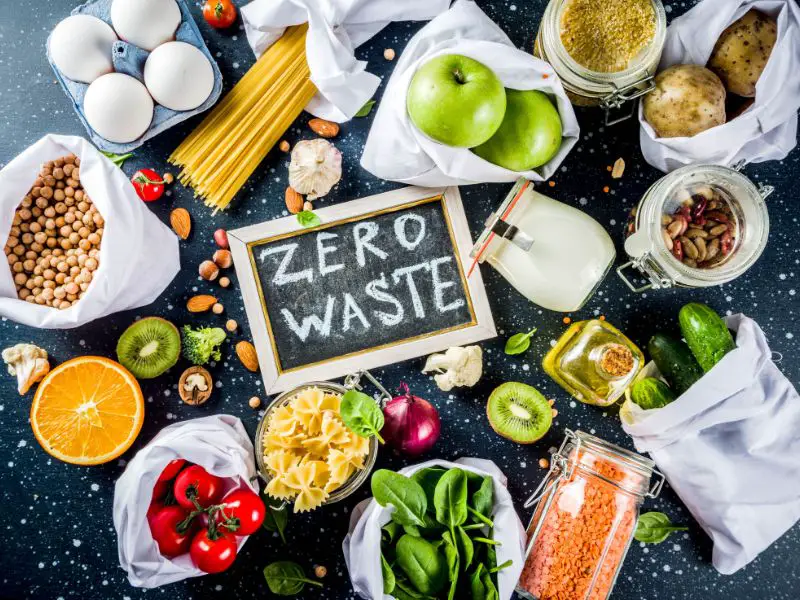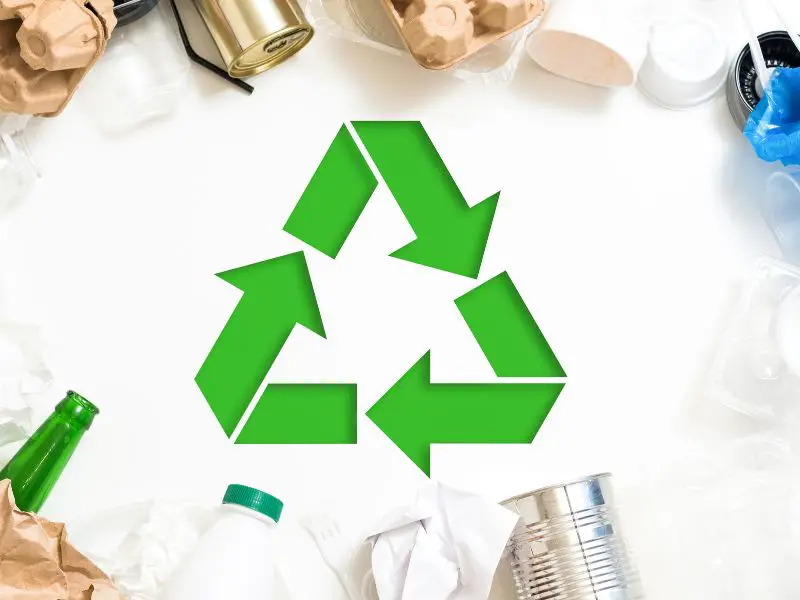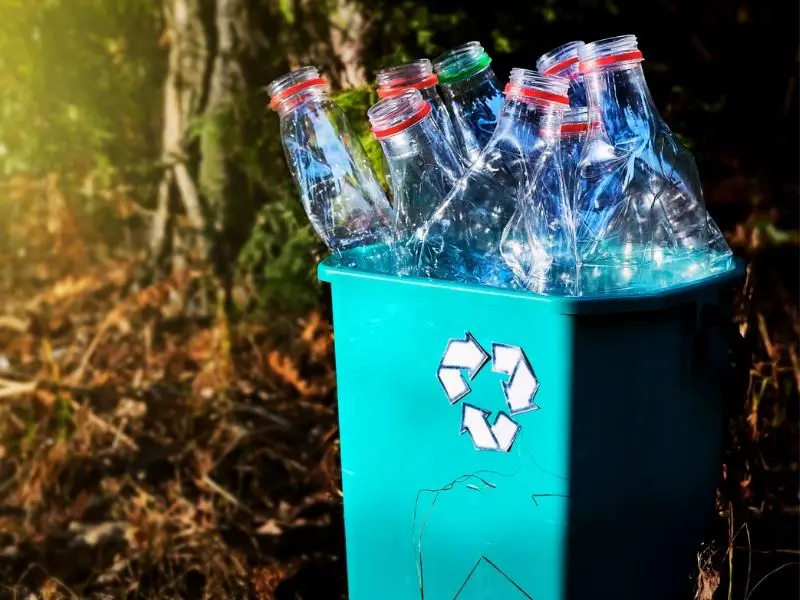You may have come across the phrase “Zero waste,” “zero waste lifestyle,” or “zero waste movement,” but what does this entail? There is more to creating a Zero Waste community than encouraging people to recycle and compost. When we say “Zero Waste,” we’re talking about changing the whole social system of production, consumption, and disposal.
Through local Zero Waste initiatives, we may directly and favorably address the major global concerns of our time—climate change, human health hazards, ecological collapse, and social/political disputes over access to resources.
This article will explore the following questions: What is Zero Waste? What roles can Zero Waste play in addressing the major global concerns of today’s culture? What are the 5 R’s of zero waste? Is it possible to put a dent in the ongoing environmental crisis individually? How to get into Zero Waste living right away? Let’s explore!
What is Zero Waste?
As specified by Wikipedia, “zero waste” means:
“The conservation of all resources using responsible production, consumption, reuse, and recovery of all products, packaging, and materials, without burning them and without discharges to land, water or air that threaten the environment or human health.”
At its core, zero waste is a philosophy that encourages people to reduce, reuse, and recycle as many products and materials as possible. The goal is to build a world where nothing ends up in the landfill, and products are made with recycled or reused materials.
On its basic level, the objective of the zero waste movement is to bring economies to the point where they produce no trash that ends up in a landfill, an incinerator, or the ocean.

What Roles Can Zero Waste Play in Addressing the Major Global Concerns of Today’s Culture?
1. Zero Waste Mitigates Our Climate Impact
According to a report by the World Bank, the amount of waste dumped into landfills can grow to 73% in the next 3 decades or roughly 3.888 billion tonnes by 2050. This represents an increase of around 2 billion tonnes from 2020’s statistics. However, this is only the beginning of a much larger problem.
According to the Ellen McArthur Foundation, the recycling industry only recycle around 9% of global waste. The rest finishes up in landfills and incinerators, where it releases methane and carbon dioxide into the atmosphere. As the world population progresses to grow, so will the amount of waste produced.
To mitigate its consequences, reducing, reusing, and recycling may be essential components in the plan to reduce greenhouse gas emissions.

2. Zero Waste Minimizes Pollution and Conserves Resources
The level of society’s consumption is far from sustainable. Whether logging a forest, mining for minerals, or drilling for oil, all these activities need a lot of power and pollute the environment in obtaining their raw materials. Manufacturing these materials demands high energy and, at the same time, produces pollution. Moreover, once these products people consume are too worn out or unable to use, they end up in landfills or are destroyed in an incinerator.
On the other hand, a zero-waste strategy helps to preserve our planet’s natural resources while simultaneously decreasing the environmental impact of resource extraction, production, and disposal. Fewer goods are produced when individuals purchase fewer of them. Zero Waste practices divert waste from landfills and incinerators. This philosophy also promotes production facilities to have access to recycled resources as an alternative to virgin raw materials.
3. Zero Waste Promotes Social Equity and Builds Community
Zero waste is a social equity component often overlooked within environmental movements. A zero-waste lifestyle requires taking responsibility for our consumption and our actions, creating a sense of community empowerment. Additionally, zero waste provides economic empowerment as it allows communities to grow their food and produce their goods rather than relying on store-bought items.
Zero Waste initiatives in the community aid the most vulnerable by redistributing items such as surplus food. Used furniture can also be given to refugees and homeless people.
Community-based zero-waste methods, such as composting in a community garden, tool sharing, and sharing skills to reuse and repair, increase the ability to decrease waste and expenses.
What Are the 5 R’s of Zero Waste Lifestyle
The 5 R’s are not a new idea; they are based on the EPA’s Hierarchy of Material Management. However, environmentalist credits Bea Johnson of Zero Waste Home (basically the OG of zero waste of the 21st century) for popularizing the idea with her concise (and catchy) presentation.
To maximize your efforts toward a zero-waste lifestyle, it is best to implement the 5 Rs in the specified sequence. It’s helpful to think of them as steps A, B, C, D, and E.
Following it in steps is optional; if you can’t complete the first, feel free to go on to the next.

1. Refuse
Refuse what you don’t frequently need, such as single-use plastic, plastic grocery bags, nonbiodegradable trash bags, plastic razors, and beverage cups.
2. Reduce
Reduce purchasing what you don’t need, like materialistic items such as new clothes and the latest smartphone. You can also reduce materials if you reduce how often you do laundry.
3. Reuse
Reuse items that you already have more often. You can also buy secondhand items and repurpose old kinds of stuff. This reduces the amount of rubbish in landfills that can harm the environment. Reusing also saves money.
4. Recycle
Recycle only what can’t be eliminated by the first three R’s.
5. Rot
Let food scraps and other organic materials like paper bags, pizza boxes, wooden toothbrushes, and cotton rot, so they can create nutrient-rich fertilizer for plants or gardens. This is important because decomposing food waste in landfills releases methane, a potent greenhouse gas that traps 86 times more heat than carbon dioxide in the atmosphere.
Related: Net Zero Emissions, Effects of Carbon Footprint and How to Reduce Yours, Simple Ways to Save More by Going Green
Can One Individual Make A Dent?
Absolutely! It’s up to you every day to make a choice that has a net positive effect on Earth. Where do you often conduct your grocery shopping? What are you consuming at the moment? What are you purchasing? There is a link between everything. Your spending habits are a political statement about the sort of world you support.
You do not simply vote in the ballot box. You cast a vote in your daily activities.
With only one tiny action, you can significantly minimize your carbon impact. Achieving zero waste is not just good for the environment; it also improves your quality of life. The side effects include eating healthier, feeling better, saving money, and eliminating the need to take out the garbage.
3 Quick Steps to Get Started Into Zero Waste Living Right Away
1. Look For Motivation
What is your driving force? Interested in making this life a better place for the next generation? Or are you a nature lover seeking a pollution-free environment to indulge your passion for the outdoors?
The motivation in your journey will come from your desire and your objectives.
2. Learn From Others
Get advice from professionals and hobbyists. Find out where they began and the challenges they overcame.
Do your own research! Learn the ropes with the help of resources. Books are a great place to start.
3. Start By Making Tiny Changes to Your Habits
Analyze your habits and make some adjustments. Waste is all around us; it is hard to miss. However, it can be easy to forget how wasteful we are in our day-to-day lives.
This waste can be in terms of food, water, energy, and paper resources. Being more mindful of waste and being more conscious of our every day habits can help scale down the volume of waste we produce and can help us be more eco-friendly.

Author’s Note
As the world suffers from increasingly worsening environmental issues, it has become clear that preserving our planet’s natural resources is no longer an option but a necessity. These efforts include reducing waste, recycling more, and consuming less.
While these changes might seem small individually, they can significantly impact collectively. Achieving zero waste means that our society will move towards a more sustainable future without completely changing how we live our lives but instead shifting to a better living.


1 thought on “Things to Know About Getting Started in Zero Waste Lifestyle Right Away”